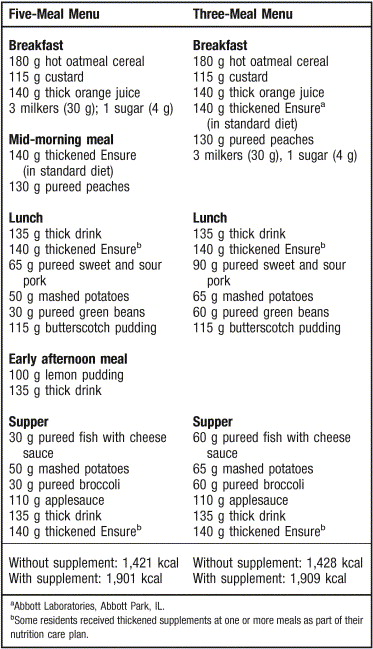
Apply Now


Practical Guide to the Vegetarian Mediterranean Diet in 2025
The Mediterranean diet is revered not just for its delicious flavors but also for its numerous health benefits. Focusing on fresh vegetables, legumes, whole grains, and healthy fats like olive oil, this style of eating promotes a balanced lifestyle. As we enter 2025, adapting the Mediterranean diet to be vegetarian presents a sustainable and nutritious way to eat, packed with antioxidants and fiber. This comprehensive guide will explore the fundamental aspects of a vegetarian Mediterranean diet, its benefits, the essentials of meal planning, and delicious recipes to incorporate into your daily routine. This article will cover the Mediterranean diet's core principles, the nutritional advantages of a plant-based approach, and practical tips for meal prep and cooking techniques. You're set to discover various Mediterranean recipes and how to incorporate seasonal ingredients into your meals. Let's dive into healthy eating practices that will enhance your well-being and enjoyment of food culture!Understanding the Mediterranean Diet
The Mediterranean diet's foundation lies in the traditional eating habits of countries bordering the Mediterranean Sea. This diet emphasizes a variety of foods that nourish the body while also offering a diverse palate of flavors. It's not just about what you eat but how you eat; the Mediterranean lifestyle encourages mindful eating and community dining experiences.Core Components of the Mediterranean Diet
A typical Mediterranean diet focuses on whole, nutrient-dense foods. Key components include: 1. **Fresh Vegetables and Fruits**: These are staples in every meal, providing essential vitamins and antioxidants. 2. **Whole Grains**: Foods such as whole grain bread, brown rice, and bulgur wheat are foundational sources of energy and dietary fiber. 3. **Healthy Fats**: Olive oil is the primary fat source, renowned for its heart-healthy polyunsaturated fats. 4. **Legumes and Nuts**: Chickpeas, lentils, and various nuts are vital vegetarian protein sources, packed with nutrients and healthy fats. 5. **Herbs and Spices**: Flavorful herbs such as oregano, rosemary, and basil not only enhance taste but also provide beneficial compounds.Health Benefits of the Mediterranean Diet
Research continually supports the numerous benefits of a Mediterranean diet. Some of the key health advantages include: - **Weight Management**: With a focus on whole foods, this diet helps in controlling weight through healthy portion sizes and reduced calorie intake. - **Cholesterol and Blood Sugar Control**: The balance of healthy fats and fiber significantly contributes to lowering cholesterol levels and managing blood sugar. - **Antioxidants and Dietary Fiber**: These components found in fruits, vegetables, and legumes play essential roles in reducing oxidative stress and promoting digestive health.Culinary Traditions and Food Culture
Mediterranean cuisine is as much about culinary traditions as it is about health. Meals are often enjoyed in a social setting, emphasizing the connection between food and community. Traditional meals often include roasted vegetables, assorted dips like hummus, and fulfilling dishes like lentil soup. Building on these social eating habits is crucial for developing a sustainable eating plan that not only nourishes the body but also the soul.Meal Planning for a Vegetarian Mediterranean Diet
Successful meal planning provides a roadmap to maintain a fulfilling vegetarian Mediterranean lifestyle. By organizing your meals in advance, you can ensure that you’re incorporating the appropriate balance of nutrients and flavors into your diet.Essential Ingredients for Your Pantry
Having staple ingredients on hand makes meal prep straightforward and efficient. Important pantry items include: - **Legumes**: Stock varieties like canned chickpeas, lentils, and dried beans for versatile cooking options. - **Grains**: Quinoa, brown rice, and whole grain pasta can serve as the base for many meals. - **Spices and Herbs**: Fresh herbs such as parsley, cilantro, or basil bring dishes to life and add nutrition. - **Healthy Fats**: Besides olive oil, consider purchasing tahini or nut butters to enhance flavor and nutrient density.Structuring Your Weekly Meals
When planning meals, aim to include a variety of food types throughout the week. Structure your menu to feature themes, such as: - **Meatless Monday**: Focus on legume-based dishes like chickpea curries or lentil salads. - **Wholesome Wednesday**: Incorporate whole grain grains into your meals with quinoa salads or that evening’s veggie stir fry. - **Fish Friday**: For non-vegetarians, include sustainable fish options alongside vegetarian dishes like roasted vegetables or bulgur wheat salads.Cooking Techniques to Explore
Utilizing different cooking methods enhances food variety and contributes to the overall dining experience. Explore techniques such as: - **Roasting**: Ideal for bringing out the natural flavors of vegetables. - **Stir-frying**: Quick and healthy method to prepare a range of foods while keeping the cooking process lively. - **Grilling**: Perfect for preparing beautiful and tasty dishes, like grilled eggplant or vegetable skewers.Delicious Vegetarian Mediterranean Recipes
A significant part of embracing the Mediterranean diet is enjoying the variety of flavors through cooking. Here are some delicious vegetarian recipes to consider adding to your repertoire.Quinoa Salad with Fresh Vegetables
Quinoa salads are versatile, nutritious, and easy to prepare. Combine cooked quinoa with diced cucumbers, cherry tomatoes, bell peppers, and a light lemon-tahini dressing. This dish is protein-rich thanks to the quinoa and packed with vitamins from fresh vegetables.Lentil Soup with Mediterranean Spices
This hearty and nutrient-dense soup can serve as a main dish or a side. Combine lentils with garlic, onions, carrots, and tomatoes. Season with cumin, coriander, and a touch of olive oil to capture the essence of Mediterranean flavors.Roasted Vegetable Medley
Roasting enhances the natural sweetness of vegetables. Try zucchini, bell peppers, and eggplant tossed in olive oil and fresh herbs, then bake until golden. This dish can be an excellent side or topping for whole grain bread.Incorporating Seasonal Ingredients
Seasonality in food ensures freshness and flavor. When you eat with the seasons, you also align with sustainable eating practices. Incorporating local and seasonal produce can improve your meal's nutritional value while supporting local farmers and reducing carbon footprints.Spring and Summer Ingredients
During spring and summer, focus on incorporating fresh greens like spinach, basil, and arugula, along with a colorful array of fruits such as strawberries and peaches.Fall and Winter Ingredients
In colder months, root vegetables like carrots, sweet potatoes, and squash become popular. Additionally, greens like kale and collard greens are available, providing essential nutrients during the winter months.Navigating Dietary Restrictions
When considering dietary restrictions, always look for substitutes or alternatives that replicate texture and flavor. For example, if gluten-free, using quinoa and brown rice can provide similar nutritional value without compromising the essence of traditional Mediterranean meals.Conclusion: Embracing a Sustainable Mediterranean Lifestyle
Transitioning to a vegetarian Mediterranean diet not only enhances your individual health but also supports global sustainability efforts. By incorporating diverse food sources, practicing seasonal eating, and making mindful eating choices, anyone can enjoy the rich culinary traditions of the Mediterranean. As you embark on this journey, maintain a balanced diet filled with fresh produce, healthy fats, and whole grains. You’ll not only enjoy a more fulfilling diet but also discover the benefits of cooking and eating as a community. Embrace these principles in your daily life for a healthier, happier you!
